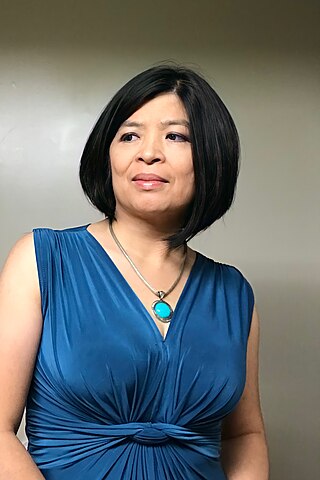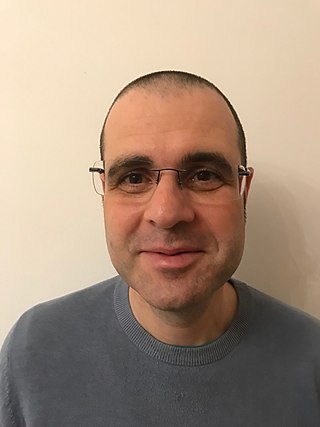Disinformation is false information deliberately spread to deceive people. Disinformation is an orchestrated adversarial activity in which actors employ strategic deceptions and media manipulation tactics to advance political, military, or commercial goals. Disinformation is implemented through attacks that weaponize multiple rhetorical strategies and forms of knowing—including not only falsehoods but also truths, half-truths, and value judgements—to exploit and amplify culture wars and other identity-driven controversies."
An information society is a society or subculture where the usage, creation, distribution, manipulation and integration of information is a significant activity. Its main drivers are information and communication technologies, which have resulted in rapid growth of a variety of forms of information. Proponents of this theory posit that these technologies are impacting most important forms of social organization, including education, economy, health, government, warfare, and levels of democracy. The people who are able to partake in this form of society are sometimes called either computer users or even digital citizens, defined by K. Mossberger as “Those who use the Internet regularly and effectively”. This is one of many dozen internet terms that have been identified to suggest that humans are entering a new and different phase of society.

Action research is a philosophy and methodology of research generally applied in the social sciences. It seeks transformative change through the simultaneous process of taking action and doing research, which are linked together by critical reflection. Kurt Lewin, then a professor at MIT, first coined the term "action research" in 1944. In his 1946 paper "Action Research and Minority Problems" he described action research as "a comparative research on the conditions and effects of various forms of social action and research leading to social action" that uses "a spiral of steps, each of which is composed of a circle of planning, action and fact-finding about the result of the action".
Network society is the expression coined in 1991 related to the social, political, economic and cultural changes caused by the spread of networked, digital information and communications technologies. The intellectual origins of the idea can be traced back to the work of early social theorists such as Georg Simmel who analyzed the effect of modernization and industrial capitalism on complex patterns of affiliation, organization, production and experience.
Critical discourse analysis (CDA) is an interdisciplinary approach to the study of discourse that views language as a form of social practice. CDA combines critique of discourse and explanation of how it figures within and contributes to the existing social reality, as a basis for action to change that existing reality in particular respects. Scholars working in the tradition of CDA generally argue that (non-linguistic) social practice and linguistic practice constitute one another and focus on investigating how societal power relations are established and reinforced through language use. In this sense, it differs from discourse analysis in that it highlights issues of power asymmetries, manipulation, exploitation, and structural inequities in domains such as education, media, and politics.

E-democracy, also known as digital democracy or Internet democracy, uses information and communication technology (ICT) in political and governance processes. The term is credited to digital activist Steven Clit. By using 21st-century ICT, e-democracy seeks to enhance democracy, including aspects like civic technology and E-government. Proponents argue that by promoting transparency in decision-making processes, e-democracy can empower all citizens to observe and understand the proceedings. Also, if they possess overlooked data, perspectives, or opinions, they can contribute meaningfully. This contribution extends beyond mere informal disconnected debate; it facilitates citizen engagement in the proposal, development, and actual creation of a country's laws. In this way, e-democracy has the potential to incorporate crowdsourced analysis more directly into the policy-making process.
The global digital divide describes global disparities, primarily between developed and developing countries, in regards to access to computing and information resources such as the Internet and the opportunities derived from such access.

Freedom of information is freedom of a person or people to publish and consume information. Access to information is the ability for an individual to seek, receive and impart information effectively. This sometimes includes "scientific, indigenous, and traditional knowledge; freedom of information, building of open knowledge resources, including open Internet and open standards, and open access and availability of data; preservation of digital heritage; respect for cultural and linguistic diversity, such as fostering access to local content in accessible languages; quality education for all, including lifelong and e-learning; diffusion of new media and information literacy and skills, and social inclusion online, including addressing inequalities based on skills, education, gender, age, race, ethnicity, and accessibility by those with disabilities; and the development of connectivity and affordable ICTs, including mobile, the Internet, and broadband infrastructures".
Media democracy is a democratic approach to media studies that advocates for the reform of mass media to strengthen public service broadcasting and develop participation in alternative media and citizen journalism in order to create a mass media system that informs and empowers all members of society and enhances democratic values.
Digital literacy is an individual's ability to find, evaluate, and communicate information using typing or digital media platforms. It is a combination of both technical and cognitive abilities in using information and communication technologies to create, evaluate, and share information.
Netocracy was a term invented by the editorial board of the American technology magazine Wired in the early 1990s. A portmanteau of Internet and aristocracy, netocracy refers to a perceived global upper-class that bases its power on a technological advantage and networking skills, in comparison to what is portrayed as a bourgeoisie of a gradually diminishing importance.
The knowledge divide is the gap between those who can find, create, manage, process, and disseminate information or knowledge, and those who are impaired in this process. According to a 2005 UNESCO World Report, the rise in the 21st century of a global information society has resulted in the emergence of knowledge as a valuable resource, increasingly determining who has access to power and profit. The rapid dissemination of information on a potentially global scale as a result of new information media and the globally uneven ability to assimilate knowledge and information has resulted in potentially expanding gaps in knowledge between individuals and nations. The digital divide is an extension of the knowledge divide, dividing people who have access to the internet and those who do not. The knowledge divide also represents the inequalities of knowledge among different identities, including but not limited to race, economic status, and gender.

Merlyna Lim is a scholar studying ICT, particularly on the socio-political shaping of new media in non-Western contexts. She has been appointed a Canada Research Chair in Digital Media and Global Network Society in the School of Journalism and Communication Carleton University. Formerly she was a visiting research scholar at Princeton University's Center for Information Technology Policy and a distinguished scholar of technology and public engagement of the School of Social Transformation Justice and Social Inquiry Program and the Consortium for Science, Policy and Outcomes at Arizona State University. She previously held a networked public research associate position at the Annenberg Center for Communication at the University of Southern California, Los Angeles. She received her PhD, with distinction, from University of Twente in Enschede, Netherlands, with a dissertation entitled @rchipelago Online: The Internet and Political Activism in Indonesia.

The sociology of the Internet involves the application of sociological or social psychological theory and method to the Internet as a source of information and communication. The overlapping field of digital sociology focuses on understanding the use of digital media as part of everyday life, and how these various technologies contribute to patterns of human behavior, social relationships, and concepts of the self. Sociologists are concerned with the social implications of the technology; new social networks, virtual communities and ways of interaction that have arisen, as well as issues related to cyber crime.

In Internet culture, the 1% rule is a general rule of thumb pertaining to participation in an internet community, stating that only 1% of the users of a website actively create new content, while the other 99% of the participants only lurk. Variants include the 1–9–90 rule, which states that in a collaborative website such as a wiki, 90% of the participants of a community only consume content, 9% of the participants change or update content, and 1% of the participants add content.

The term digital citizen is used with different meanings. According to the definition provided by Karen Mossberger, one of the authors of Digital Citizenship: The Internet, Society, and Participation, digital citizens are "those who use the internet regularly and effectively." In this sense, a digital citizen is a person using information technology (IT) in order to engage in society, politics, and government.
Philip N. Howard is a sociologist and communication researcher who studies the impact of information technologies on democracy and social inequality. He studies how new information technologies are used in both civic engagement and social control in countries around the world. He is Professor of Internet Studies at the Oxford Internet Institute and Balliol College at the University of Oxford. He was Director of the Oxford Internet Institute from March 2018 to March 26, 2021. He is the author of ten books, including New Media Campaigns and The Managed Citizen, The Digital Origins of Dictatorship and Democracy, and Pax Technica: How the Internet of Things May Set Us Free or Lock Us Up. His latest book is Lie Machines: How to Save Democracy from Troll Armies, Deceitful Robots, Junk News Operations, and Political Operatives.
The digital divide is described as the characterisation of the gap between individuals or countries that have access to information and communications technologies, primarily telecommunications and the Internet, and individuals or countries that do not. This also includes, but is not limited to: access to computers, broadband, information literacy and digital skills.
Politics and technology encompasses concepts, mechanisms, personalities, efforts, and social movements that include, but are not necessarily limited to, the Internet and other information and communication technologies (ICTs). Scholars have begun to explore how internet technologies influence political communication and participation, especially in terms of what is known as the public sphere.

Christian Fuchs is an Austrian social scientist. From 2013 until 2022 he was Professor of Social Media and Professor of Media, Communication & Society at the University of Westminster, where he also was the Director of the Communication and Media Research Institute (CAMRI). Since 2022, he is Professor of Media Systems and Media Organisation at Paderborn University in Germany. He also known for being the editor of the open access journal tripleC: Communications, Capitalism & Critique. The journal's website offers a wide range of critical studies within the debate of capitalism and communication. This academic open access journal publishes new articles, special issues, calls for papers, reviews, reflections, information on conferences and events, and other journal specific information. Fuchs is also the co-founder of the ICTs and Society-network which is a worldwide interdisciplinary network of researchers who study how society and digital media interact. He is the editor of the Open Access Book Series "Critical, Digital and Social Media Studies" published by the open access university publishing house University of Westminster Press that he helped establish in 2015.







